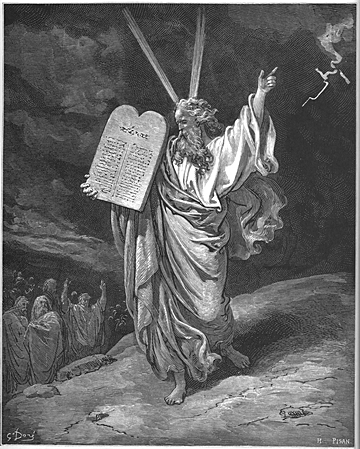2 Corinthians 3
1 Are we beginning again to commend ourselves? Or do we need, as do some, letters of commendation to you or from you?
Mamototse maniom-batañe indraike hao zahay? ke t’ie, manahake o ila’eo, mipay taratas-pañiniañe ho ama’areo, he taratas-pañiniañe boak’ ama’areo?
2 You are our letter, written in our hearts, known and read by all men,
Inahareo ro taratasi’ay pinatetse añ’ arofo’ay atoañe, fohiñe naho vakie’ ze kila ondaty,
3 being revealed that you are a letter of Christ, served by us, written not with ink, but with the Spirit of the living God; not in tablets of stone, but in tablets that are hearts of flesh.
ie malange te taratasi’ i Norizañe toroñe’aiy, tsy sinokitse an-dranomainte fa amy Arofon’ Añahare veloñey, tsy an-takelam-bato fa an-takelan-tro’ ondaty.
4 Such confidence we have through Christ toward God,
Izay ty fatokisa’ay aman’ Añahare añamy Norizañey.
5 not that we are sufficient of ourselves to account anything as from ourselves; but our sufficiency is from God,
Tsy te zahay ro mañeva hivolañe t’ie maha-pi-draha, fa boak’ aman’ Añahare ty fahalefea’ay,
6 who also made us sufficient as servants of a new covenant, not of the letter but of the Spirit. For the letter kills, but the Spirit gives life.
Ie ka ty nampahafaritse anay ho mpitoro’ i fañina vaoy; ie tsy an-tsokitse, fa amy Arofoy; mahafate i sokitsey, fe mahaveloñe i Arofoy.
7 But if the service of death, written engraved on stones, came with glory, so that the children of Israel could not look steadfastly on the face of Moses for the glory of his face, which was passing away,
Aa naho an’ engeñe ty nitotsaha’ i fitoroñam-pihomahañe an-tsokitse pinatetse am-batoy, ie tsy nahafitalatse ty lahara’ i Mosè o ana’ Israeleo ty amy engen-dahara’ey—ie nipoa-mavo,
8 will not service of the Spirit be with much more glory?
aa tsy handikoatse izay ty enge’ o fitoroñan’ arofoo?
9 For if the service of condemnation has glory, the service of righteousness exceeds much more in glory.
Ie nanañ’ engeñe ty fitoroñam-pañozoñañe, sandrake te itoboaran’ engeñe ty fitoroñan-kavañonañe.
10 For most certainly that which has been made glorious has not been made glorious in this respect, by reason of the glory that surpasses.
Aa naho oharañe ami’ty engeñe mitoabotse toy, le tsy aman’ engeñe henaneo i nirengèñe taoloy.
11 For if that which passes away was with glory, much more that which remains is in glory.
Fa naho nanañ’ engeñe i mipoa-mavoy, antsake te hanam-bolonahetse i tsy mete modoy.
12 Having therefore such a hope, we use great boldness of speech,
Aa kanao izay o fitamà’aio, le ra’elahy ty fahavania’ay,
13 and not as Moses, who put a veil on his face so that the children of Israel would not look steadfastly on the end of that which was passing away.
f’ie tsy manahake i Mosè nikolopofa’ ty lamba marerarera an-dahara’e tsy mone hitolom-pangareke aze o ana’ Israeleo ampara’ t’ie nimavo,
14 But their minds were hardened, for until this very day at the reading of the old covenant the same veil remains, because in Christ it passes away.
fe nihagàñe ty fivetsevetse’ iareo, naho mbe tsy miafake henanekeo amy famakiañe i fañina taoloy i marerareray, fa amy Norizañey ty fañahañe aze.
15 But to this day, when Moses is read, a veil lies on their heart.
Aa ndra henaneo, ndra mb’ia mb’ia vakieñe t’i Mosè le kolopofa’ i marerareray ty arofo’ iareo.
16 But whenever someone turns to the Lord, the veil is taken away.
Fe naho mitolike amy Talè t’indaty, le miafake i marerareray.
17 Now the Lord is the Spirit; and where the Spirit of the Lord is, there is liberty.
I Talè ‘nio i Arofoy, le añ’Arofo’ i Talè ao ty fidadàñe.
18 But we all, with unveiled face seeing the glory of the Lord as in a mirror, are transformed into the same image from glory to glory, even as from the Lord, the Spirit.
Fe itikañe iaby, an-daharañe tsy mikolopoke, mañisake hoe an-ketsoro ty enge’ i Talè, ro hovaeñe ho hambam-bintañe ama’e aman’ engeñe itoaboran’ engeñe añamy Talè, i Arofoy.





















